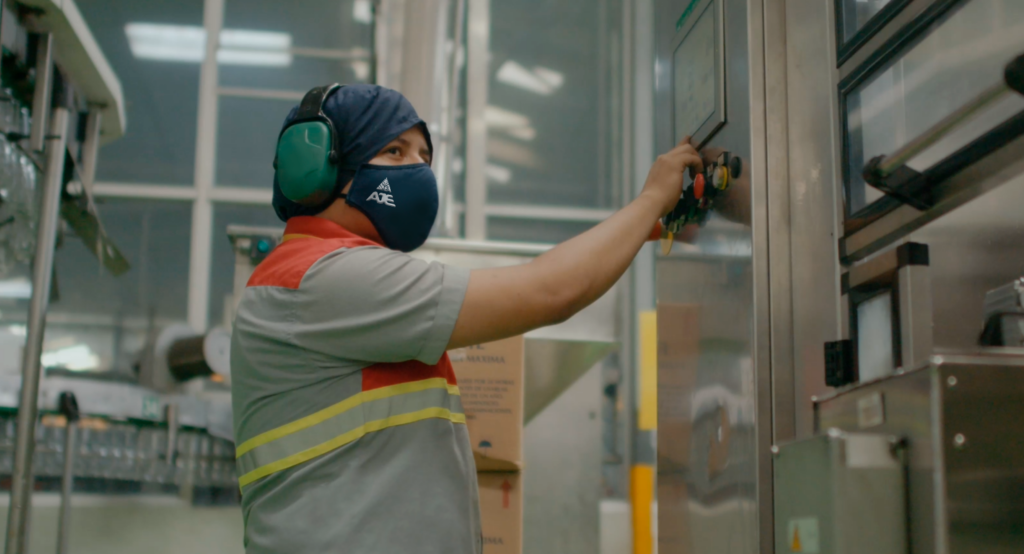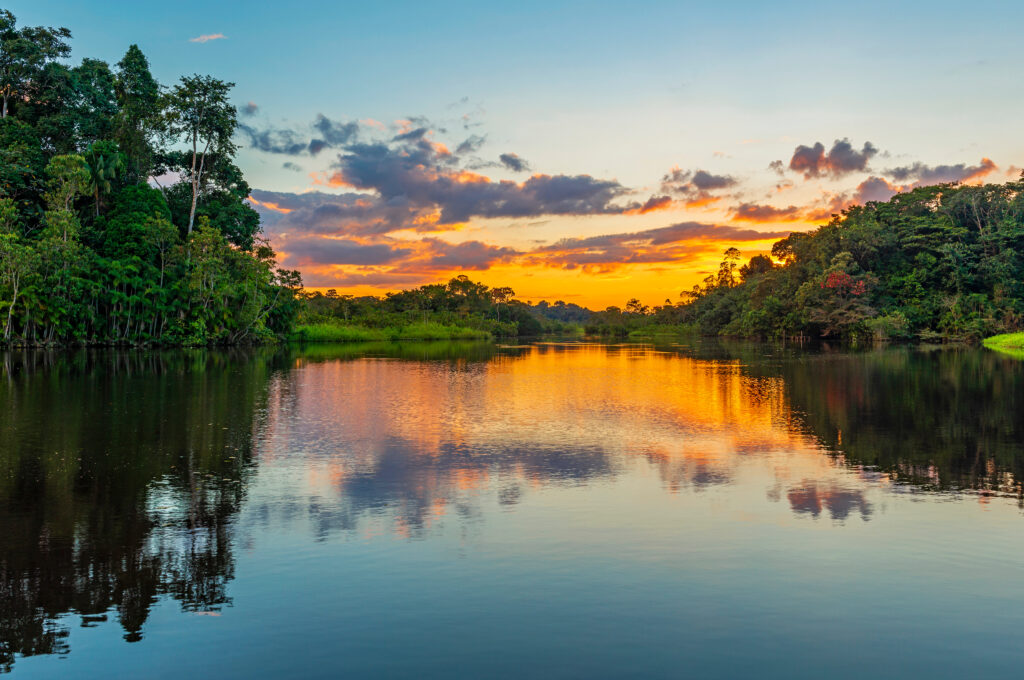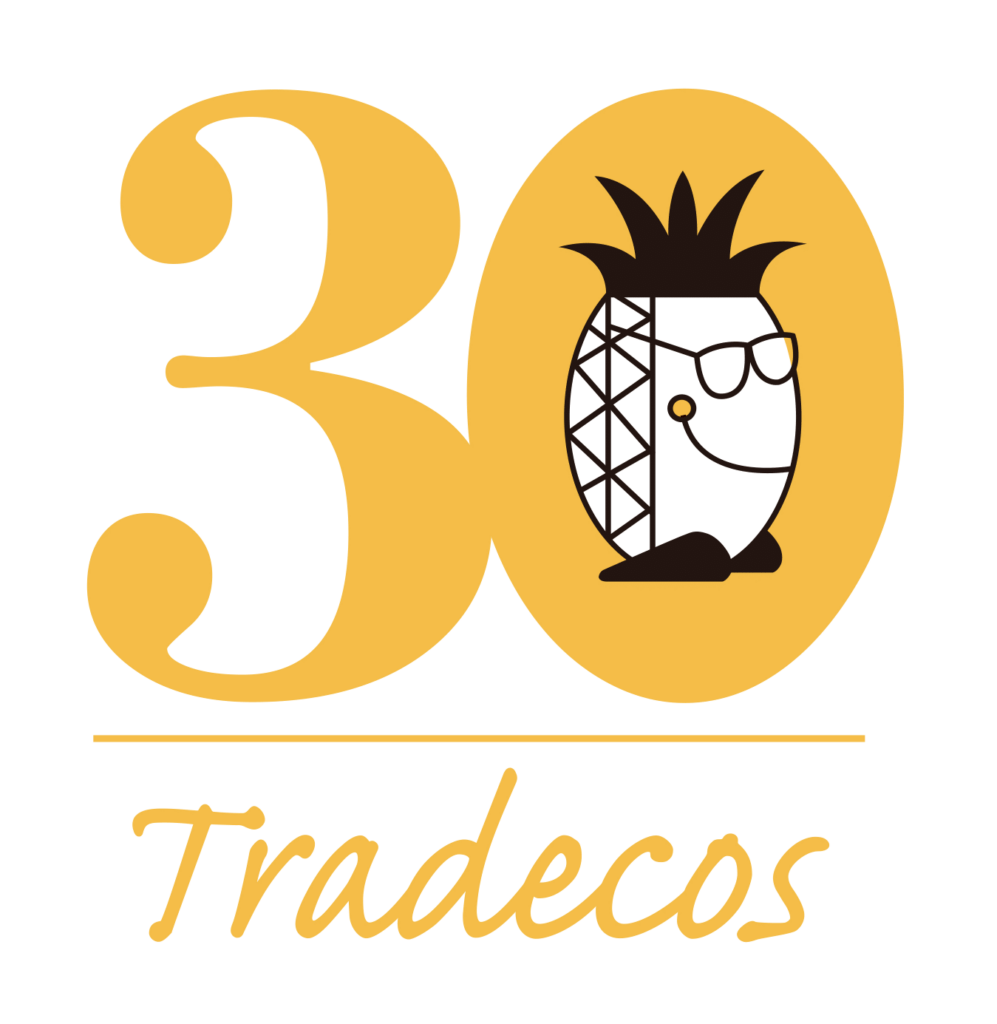AJE Group’s reputation as a global leader in beverage production is assured, but that isn’t stopping the company from assuring the preservation of the world around it. The organisation’s pioneering sustainability model already spans 14 countries, having been developed by Jorge Lopez Doriga. He is joined by Supply Chain and Procurement executives, Raul Samaniego and Raul Pausin, to discuss this exciting revolution. CEO, Augusto Bauer further confirms the mission of a truly unique company.
Hi Augusto. As CEO, it would be great to begin with a more general introduction from you, to pinpoint the company’s current strategy and the business climate you’re operating in.
There are numerous challenges in this industry, from increasing logistics costs, to the need to develop local suppliers for a stronger presence closer to production plants. In addition, there is also the pressure to address sustainability concerns and regulatory requirements, and it has been our priority for a long time to develop a truly sustainable, recycling-centric chain.
Click Below: view the magazine version of this content
We continue to seek efficiencies in all areas of our production and commercial activities, which not only help the environment but that also allow us to maintain our operating margins.
It is my responsibility to maintain this strategic direction and ensure these results are not just achieved in the short-term, but consistently over the course of the future.
Raul Samaniego, having been with the company for more than nine years, you have seen this evolution of strategy first hand. Now, as VP of AJE Group’s Supply Chain, what would you consider the biggest developments or challenges to have been during this period?
Despite having more than 25 years of experience across industries, the past few years have presented some of the biggest challenges I have seen. Biggest of all is the way that consumer demands and preferences have changed, especially with the impact of the pandemic which accelerated these changes, while simultaneously disrupting logistics and global supply chains.
However, out of this challenge, there has been a positive reassessment of what a supply chain management (SCM) strategy in the new world should focus on.
What would you say is the new SCM priority then, Raul?
Most certainly, digital intervention and digital transformation.
At AJE Group, we are in the process of introducing and evaluating specific technologies such as advanced analytics, artificial intelligence, IoT (sensors) machine learning, augmented reality and robotic process automation (RPA) to guide our own digital transformation. These technologies help us to streamline processes, improve efficiencies and reduce costs across our global operations.
How has your digital transformation effort manifested so far?
There has been a special focus on visibility tools, and the ability to see – in real-time – the location, status and condition of goods as they move across the supply chain. These tools enable us to identify potential disruptions or delays, and to take corrective actions before they impact delivery times or ultimate customer satisfaction levels.
Another focus has been on the introduction of predictive analytics. Machine learning and AI allows us to analyse large volumes of data, and to identify patterns and trends in our systems and processes.
In turn, this data also enables us to optimise inventory levels, reduce lead times, and improve overall efficiencies across both manufacturing and supply chain operations.
Enabling this transformation of our supply chain operations are our loyal business partners. We pride ourselves on transparency, which lends to close collaboration, and an open and inclusive environment. Without this approach, innovation and creativity is impossible, and digitisation becomes more complex.
As a final note from yourself, Raul, how do you feel AJE Group differentiates itself as a business, and how have the past few years highlighted that competitive advantage?
What differentiates AJE Group as a business is our commitment to democratising consumption by providing accessible, quality products at a fair price. We believe that our success lies in our ability to adapt to changing consumer needs and preferences while maintaining our core values, and a culture of collaboration and transparency.

Raul Pausin, as Chief Procurement Officer for the global company, what has been your role as part of this ongoing evolution of AJE Group? Presumably, you have helped pave the way for some of those aforementioned business partnerships to become a success?
My role aligns with a lot of what my colleague, Raul Samaniego explained – to lead the Global Procurement Team in way that satisfies organisational needs across areas of cost, profit margins and customer satisfaction.
With the help of new technologies as already described, the goal is to reduce or eliminate lower-cost or routine manual tasks; to not only make us more cost efficient, but to also streamline processes and to allocate more meaningful tasks to employees.
A really good example of this has been the implementation of Fullstep, a source-to-pay cycle management platform. We have also introduced the Tableau solution as a business analytics platform to access, visualise and analyse our data.
Both of these companies have been key to our recent digitalisation efforts. As Raul mentioned, close collaboration and transparency has been important to ensuring these solutions have made their required impacts.
Content Sponsor – Tradecos
One of the well-known tenets of AJE Group is the company’s commitment to sustainability. Jorge, bringing you in at this stage as Director of Sustainability and Communications, can you try to put this significance into words?
Since 2014, I have helped merge these areas of sustainability and communications, initially starting out in marketing before seeing the potential and need for the former to be introduced more prominently.
What has happened since has been beautiful. AJE is actually quite a peculiar company – the fourth largest of its kind in the world, but not deriving from the traditional industrial world. We’re from Peru, but not even from Lima. Instead, our origins are from Ayacucho, a small village with rural surroundings.
In this respect, our history and our genesis is steeped in biodiversity, and our expansion has been inspired by that inception. Each of the 14 countries we have moved into are chosen for their own levels of biodiversity, with a priority to protect them. We have expanded to the world’s jungles, with a promise that we will give back to mother nature, what mother nature has given to us.
Being born and raised as an organisation among the less built-up world, must present a huge competitive advantage now, where industrial-born enterprises are still learning how best to master sustainability?
I can prove this in one simple way. If you Google the words ‘Revolucion Natural’, do you know what appears at the top of the ranking list? It is us, AJE Group.
Now, this might not have always been as big a competitive advantage as it is now. But we are seeing a big shift in consumer patterns which brings them more in line with our philosophy. In fact, we shouldn’t call them ‘consumers’ anymore. Rather, they are ‘conscious users’. When purchasing a product, they consider if it is good for them; for society; for the environment; for their futures.
This new relationship places sustainability very highly as a priority within the food & beverage sector, and we know we have an advantage over the market in this area, because it has been the very essence of our growth and success.

Please talk me through how you uplift these new areas as you expand operations around the world…
Well, we do it through the very drinks we produce. We create categories of drink based on the resources and biodiversity of each respective location. In doing so, we give value to that biodiversity, and an ability to make use of that forest or jungle in a way that is considerate and sustainable. This is opposed to leaving it vulnerable to deforestation or heavy taxing.
This approach also aids our commercial proposition. We’re making beverages from super fruits of the jungles we are present in, and giving value to the area from which the fruits come from. They are, in essence, bio-businesses, and this is a huge step on from simply being sustainable, but not really saving or championing the natural areas around the world that are most vulnerable or exploited.
Because, really, we shouldn’t just be talking about ‘sustainability’. That is too easy as a word to tick off or claim you do it. Really, we should be talking about ‘survival’ and helping species’ and natural areas to survive. We can say we contribute to survival, and that’s very different from what the industrial world classes as sustainability.
This is a hugely exciting approach which must resonate with not just customers, but also business partners too?
Most certainly. And, even more importantly, it resonates with and positively impacts the indigenous communities in these areas too. We’re empowering them to become our partners – they are the people who collect the fruit and supply to us, which is again a very unique approach to ESG or social responsibility in the supply chain, compared to many other organisations.
It is a beautiful thing to watch develop, seeing not plantations but wild trees in primary forests being cared for and used only for the amazing fruits they would already provide. Not only that, but the people picking those fruits are those from local areas who know the forests better than anyone, and who care most about their preservation.
How far into this project are you currently?
We are already in 14 of the most biodiverse countries in the world, with Ecuador, Colombia and Thailand also being expanded into. We want to keep developing this model and to keep being the face of the natural revolution/revolucion natural.
We want the world to see a business can be globally successful by doing things in a different way. Instead of creating products that satisfy traditional consumer needs, start creating companies that satisfy the needs of mother nature. From there, the modern conscious user will still make that model a commercial success.
We are just at the beginning of our revolution.
Thank you, Jorge. Coming back to you finally, Augusto, as CEO: how would you surmise this unique model and mission?
As Jorge rightly says, we have to make sure our brands have a purpose that transcends industry and that relates to the aspirations, emotions and experiences of people around the whole world. Those people are, after all, our customers, and they don’t just exist in industrial, urban environments. They also want to see their communities, regions and countries being preserved and protected.
We are creating value propositions that will ensure we retain a competitive advantage long into the future. This means continuously reinventing ourselves, but always in line with our core mission which is ensuring the sustainability of our business, by mastering sustainability more broadly.


